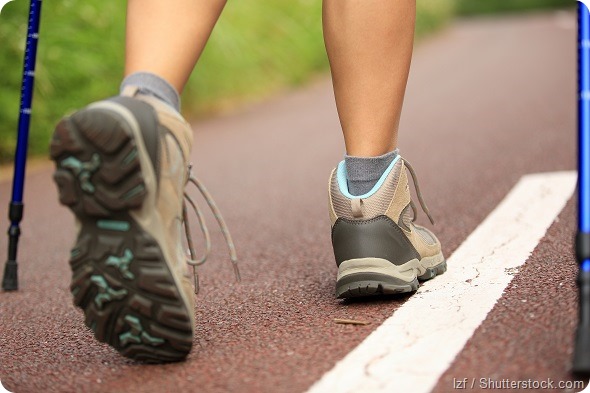People who are physically inactive may significantly reduce their risk of early death by walking for just 20 minutes a day, according to new research.
In a study of more than 334,000 individuals, a lack of physical activity was found to account for twice as many deaths as obesity, yet just a modest increase in physical activity could mean substantial health benefits for sedentary individuals.

Professor Nick Wareham, Director of the Medical Research Council (MRC) Epidemiology Unit at Cambridge University says:
helping people to lose weight can be a real challenge, and whilst we should continue to aim at reducing population levels of obesity, public health interventions that encourage people to make small but achievable changes in physical activity can have significant health benefits and may be easier to achieve and maintain.
Also from the MRC unit, Professor Ulf Ekelund and team examined the relationship between physical inactivity and early death in 334,161 European men and women. They also looked at whether this relationship was modified by overall and abdominal adiposity. The participants’ height, weight and waist circumference were measured between 1992 and 2000 and physical activity was evaluated using a validated self-assessment questionnaire. The cohort was then followed for a mean of 12.4 years.
As reported in the American Journal of Clinical Nutrition, the authors found that the greatest reduction in risk of early death was observed between people categorized as inactive and those categorized as moderately inactive, as defined by their work and recreational activity level.
Those who were moderately inactive were between 16 and 30% less likely to die prematurely than those who were inactive. The authors estimate that to class as moderately inactive and achieve this risk reduction, inactive individuals only need to take one 20 minute brisk walk a day. Furthermore, although a lack of physical activity may contribute to a higher body mass index (BMI) and obesity, the link to premature death was independent of BMI, with the risk reduction applying across all strata of overall and abdominal adiposity.
Ekelund said:
Just a small amount of physical activity each day could have substantial health benefits for people who are physically inactive
However, he adds that although 20 minutes a day could make a difference, “we should really be looking to do more than this – physical activity has many proven health benefits and should be an important part of our daily life.”
Sources